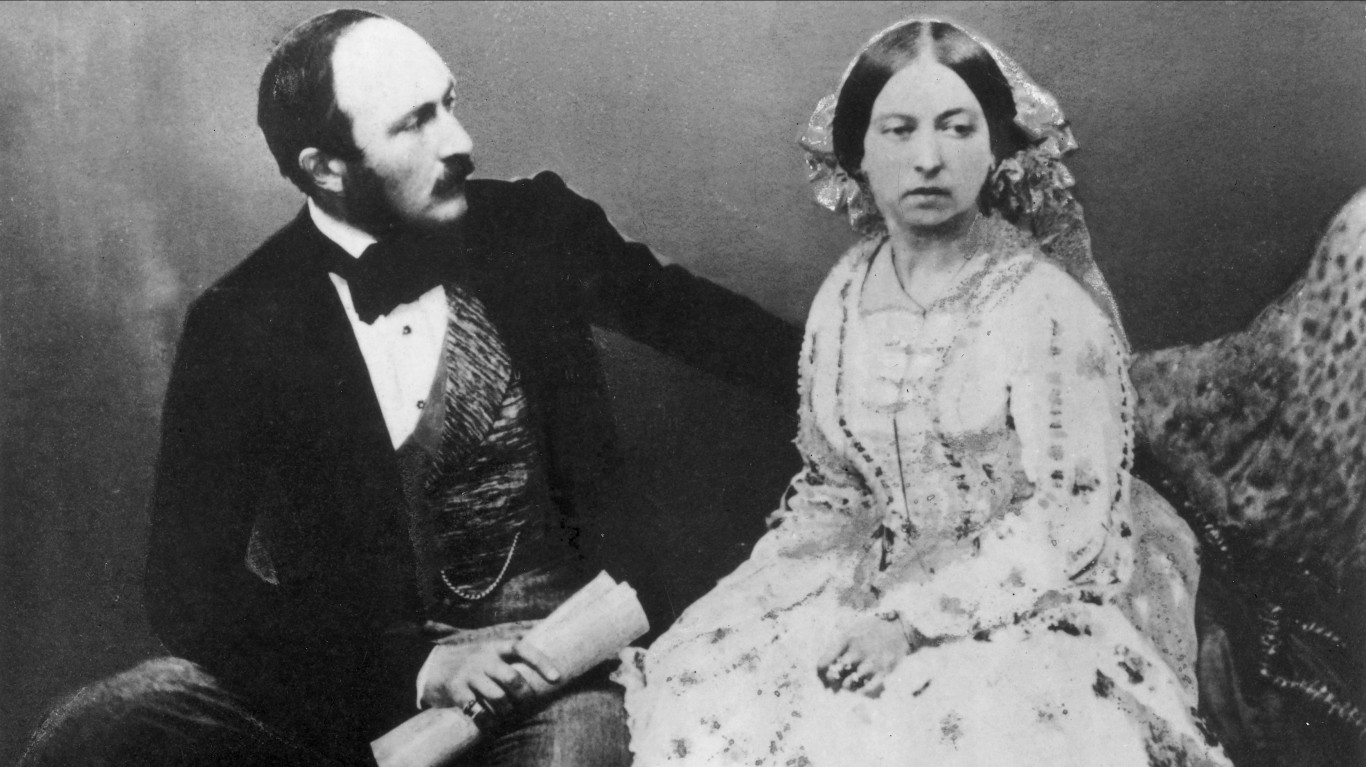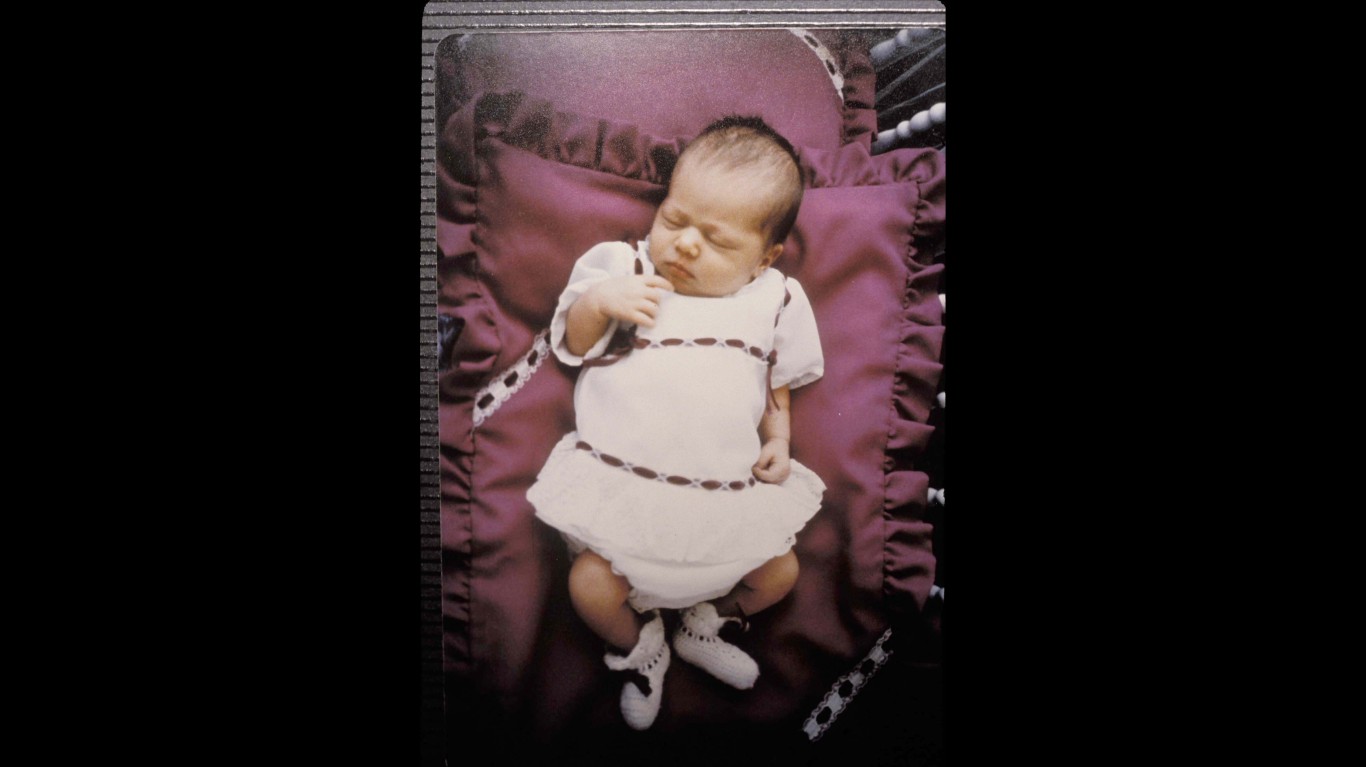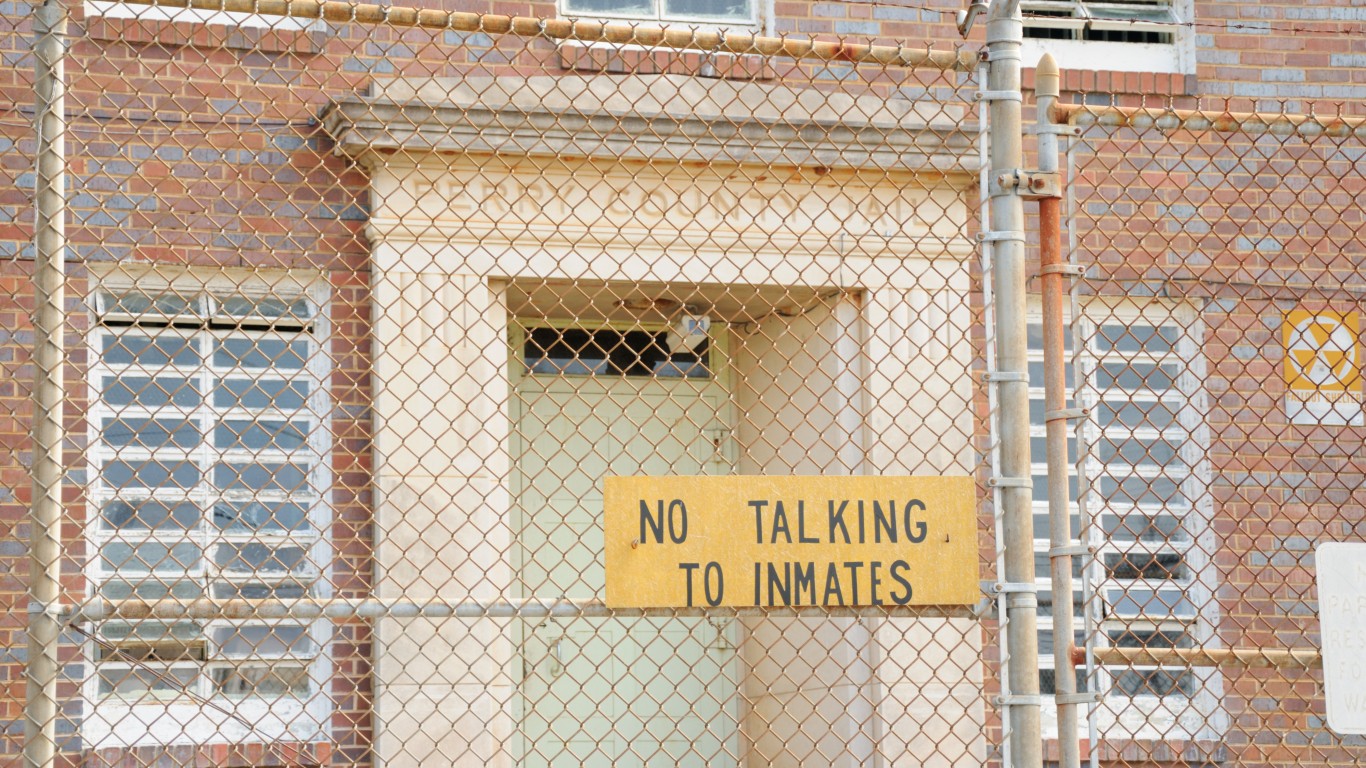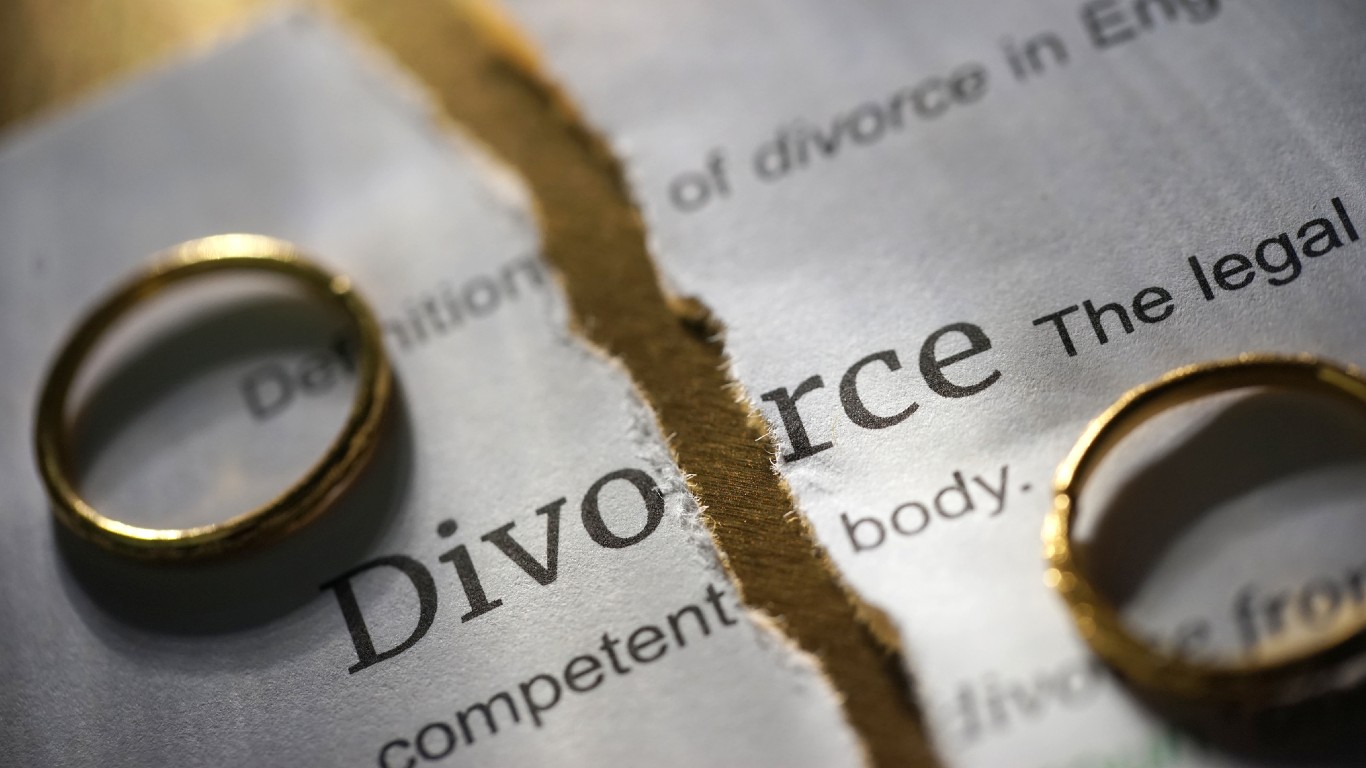Health and Healthcare
This Study Ranks The 20 Most Stressful Life Events

Published:
Last Updated:

We all experience stress. Healthy stress, bad stress, stress we inflict on ourselves. Stress is a part of life, and learning to deal with it is a core aspect of our human experience. There are whole industries, traditions, and religions based on reducing or profiting from stress. We can work to eliminate stress or avoid it altogether, but at some point, all of us will experience significant stress whether we want to or not.
When we are in the midst of a stressful event, it can be hard to see beyond the event itself or act rationally. A healthy network of supportive family, friends, and useful tools is essential for anyone to effectively navigate the perils of stressful times.
Stress does more than ruin your day. Significant levels or prolonged periods of high stress can impact your health and emotional well-being, and can even cause death. Knowing what the most stressful events are (at least according to most people) can be useful since everyone will experience at least a couple of the events on this list.
But what are the most stressful life events, what can you do about them, and why are they so stressful? Here are the 20 most stressful life events.

The events on this list are taken from the study titled, “The Social Readjustment Rating Scale” published in the Journal of Psychosomatic Research. This asked participants to rank the type of stressful events they had experienced, and how often they occurred, from a list of stressful events. The items on the list were ranked according to the amount of stress they cause in life. We have included only the top 20 events from the list.
Previous studies already showed that a clustering of social and life events is necessary for the onset of certain illnesses and contributes to an increased risk of disease.
It is helpful to think about stress the same way we think about working out. Working out, or lifting weights, damages our muscles and gives them an opportunity to grow bigger and stronger so the next time we can lift more. Short periods of healthy stress, if managed properly, can give us opportunities to grow and learn so that the next time a stressful event happens, we can better manage it. However, prolonged stress, like too much exercise or bodily harm, can permanently damage our bodies, minds, and souls so recovery is much more difficult.
Simply shrugging off significant life events or pretending like stress doesn’t impact you is not healthy. It doesn’t make you look tough. There is substantial societal pressure to get over stressful events, but doing so (especially if the stress is significant) can be even more damaging to your mental, emotional, spiritual, and physical health. Thankfully, this cultural pressure is shifting.
Sometimes it becomes impossible for us to manage our stress alone. This is when it becomes necessary for us to reach out to licensed professionals or friends and family to help. If you find that you have experienced more than just a couple of the events on this list, we strongly encourage you to seek support before your stress causes more severe health and relationship damage.

The astute reader might notice that this list does not include foreclosure on a mortgage or bankruptcy, yet simply having a mortgage over $20,000 is enough to break the top 20. Why is this?
Owning a home and financing that home with an expensive mortgage has been the centerpiece of the American Dream for millions of people for several generations. This propaganda has become so widespread that millions of migrants and refugees flock to the United States both legally and illegally with the hope of securing their own typical American home. Even millions of Americans fall victim to this messaging that too many borrow more than they can possibly afford to live in a home they were told was the mark of success. Too many, then, live under the constant stress of making payments they know will leave them destitute and impoverished.
The looming pressure of keeping up with payments for our entire life is easy to justify when we see everyone else doing it. What is the cumulative effect of millions of people living with significant mortgages that contribute so much stress to our lives? It can’t be anything good.

The most impactful person in our lives should be our spouse. It should come as no surprise, then, that if the number of arguments we have with our spouse increases, our stress levels will increase as well. Our spouse should be a source of support, safety, and strength. If our life choices cause us to argue more than we rest and enjoy each other’s company, not only do we add more stress to our lives, but we are also depriving ourselves of the positive benefits of a healthy relationship.

Sometimes we change our profession out of financial necessity, sometimes it is out of boredom or moral convictions. Whatever the reason, seeing years of professional development disappear as we start a new job in a new industry is extremely stressful.
In a society in which our value as a human being is determined by our ability to work and generate value for the company, moving between different lines of work impacts not only your plans for the future but also your perception of yourself as a valuable human being.

You are going to see death more than once on this list. Human beings are social and empathetic animals. We can imagine the pain of strangers on the other side of the planet. The closer that death gets to home, the more stressful that death becomes. Death, no matter who it is, will generate significant stress. When that person is a friend — someone with whom we have shared life events both positive and negative — that stress is going to have a much deeper impact.

We value money, a lot. This value comes from not only the desire to provide for our families and live comfortably but also to justify our existence as human beings in a world where our level of success is measured entirely by money. When we lose that money and find ourselves struggling to make ends meet, stress will follow, making the struggle to earn a living that much more difficult. It is a vicious cycle that many people do not escape, and too many people in power do not understand.
Those who are wealthy will often say that “money can’t buy happiness”, which is true. But not having enough money in a money-obsessed society means not being able to pay for basic things like food, a place to live, doctor appointments, school, and more, adding to stress exacerbating existing mental and physical illnesses.
Keep in mind, that this event isn’t limited to just losing money. It can sometimes work in the opposite direction. When we suddenly find ourselves with significantly more money, the pressure to “keep up with the Joneses” in our new economic class can add pressure to our lives.

What does ‘readjustment’ mean? Anything that changes the routine, structure, responsibilities, or duties of your regular occupation. We are creatures of habit and we prefer to live and work comfortably within a set of rules and expectations we can predict at the start of each day. A business readjustment upends that predictability and we are forced to adapt to and overcome obstacles we didn’t have to before. We have to learn new tools, meet new people, and adjust to new workplace dynamics and relationships all while maintaining our previous productivity.

It is impossible to describe the change in lifestyle a new family member requires. Whether this member is added through birth, adoption, or some other way, family dynamics, habits, and other aspects of regular life have to change to accommodate the person. These changes, and the demands a new person adds to the providers of the family, add stress to the family that many people simply do not plan for when they decide to have a family. A baby or other new family member is not a doll, it is not a toy, they are another human being who deserves as much accommodation and respect in the family as you expect for yourself.

Regular, intentional, and satisfying sexual activity is a fundamental aspect of an intimate and healthy marriage (or other, similar intimate relationship). That’s why any issues with the sexual aspect of your relationship can start to impact the relationship as a whole. These difficulties can be biological, psychological, or otherwise. People can have vastly different sexual educations upon entering a new relationship, which can negatively impact the couple if either is unwilling to learn and grow in a healthy way.
You cannot have a full, complete, and healthy marriage without working on your sexual relationship. Unrealistic expectations, unfair demands, inability to perform, and other issues are common obstacles for couples to overcome together. If these remain unaddressed, or if one person in the relationship is unwilling to create a healthy sexual relationship, it will generate significant stress.

We know that adding a new person to a family already generates stress, but what many people (mostly men) do not understand is that pregnancy also contributes to this stress, independent of the impending addition of a new member. Pregnancy changes the body, brain chemistry, and other aspects of a woman’s body, impacting her daily routine, thought processes, and other parts of her life that were heretofore unchanged and reliable.
When a partner selfishly refuses to adjust their own lifestyle to accommodate the pregnancy, they add more stress and tension to an already difficult situation. Pregnancy requires more than one person to begin, and it definitely requires more than one person to maintain until it is done.

Any change to an environment in which you have grown comfortable will be stressful, especially when that change impacts the health and safety of those you love. Of course, health changes aren’t limited to the physical body. Mental, emotional, and psychological issues will require other family members to adapt to the new situation, and should not be treated any differently than physical health changes or sicknesses.
Families who ignore the mental and emotional health of each other suffer from significantly more stress than other families.

So, you worked your whole life in a cubicle, missing your kids’ soccer games and dance recitals, living for your five vacation days a year only to reach retirement age and realize you wasted your life? Yes, that will create a lot of stress. It might not be surprising to hear that retirement itself isn’t stressful, it’s realizing that you wasted your life and now only have a few years to do everything you wanted to.
How can you avoid this significant stress? Actually live your life and enjoy your family now instead of selling your best years to a middle manager who doesn’t care about you.

It is easy to run away from our problems, especially problems with the most important people in our lives. It takes work and effort to find common ground, compromise, and grow together. This work creates stress. Those who do not put any effort into their marriage will avoid this stress, of course, but it will be a marriage devoid of affection and real love.

Being fired is more than just a loss of income you rely on to support yourself and your family, it is a direct attack on your perception of yourself as a human being. When your entire value in our society is based on how well, hard, and fast you can work, losing your job tells you that you have no value and that your work isn’t good enough.

Marriage, whether legal or otherwise, is an agreement between two people to love, support, help, and take care of each other. This agreement isn’t easy. Anyone who tells you otherwise clearly isn’t putting in their fair share of work into their own marriage, and thus only experiencing a fraction of the stress that marriage creates.

As much as we care for those around us, personal injury and sickness will always be more stressful than the sickness and injury of loved ones. The suffering itself is a significant stressor, but the loss of income, the inability to take care of daily tasks, and the strain we put on others all contribute to the stress that personal sickness adds to the suffering.

Death, especially death in a strong, fundamentalist community where the possibility of eternal suffering and damnation is a possibility, will always create stress. Even without the overbearing pressure of religion, death separates us from those we love, takes away someone we rely on, and plunges us into a time of uncertainty, confusion, and sadness.

Is jail (or prison) meant to punish, rehabilitate, an excuse to get around anti-slavery laws by over-incarcerating minorities and forcing them to work for slave wages, or simply to separate those we don’t like from the rest of civilized society so we can forget about them and live a peaceful quiet life?
Whatever the purpose of jail, it is one of the top causes of stress, and without suitable mental, emotional, professional, and psychological help, those who suffer this stress will be released back into society with permanent damage that they don’t know how to deal with in a healthy way, continuing the cycle of violence and crime that forced them into prison in the first place.

Those in a healthy, equitable marriage will see themselves as two complete halves of one greater whole. Sometimes, however, even despite our best efforts, those two halves need to separate in order to overcome significant obstacles. The uncertainty that comes with this separation adds to the stress of the situation. Those who consciously or unconsciously relied on the other person more than they did will find this situation more stressful.

A divorce is the death of that greater whole created by two loving individuals. It is the end of a relationship that was built and cared for over the years. The longer that marriage lasts, the more intense the stress of divorce will become. Divorce impacts children, family, friends, and others, not just the two who are divorcing. It is among the most damaging events in a child’s life, as well.
Sometimes, divorce is the only option left to a couple that has encountered a barrier or an issue that they cannot resolve in any other way. This does not mean that the marriage has failed, or that the members of the marriage did anything wrong necessarily. The ability to recognize the natural end of a relationship and deal with it like reasonable, loving adults, is a sure sign of a mature person. The love and care might continue after, of course, which will help with dealing with the stress that will follow.

Of the top ten events on this list, five of them involve a spouse and two of them involve death. The death of a spouse is, without question, the largest cause of stress for most people, and often a source of stress and despair that many never recover from.
Unfortunately, there is societal, economic, and religious pressure that increases this stress and makes the loss of a spouse even worse. We can work to eliminate these pressures, but this event will always be significantly difficult no matter what we do or who we are.
Are you ahead, or behind on retirement? For families with more than $500,000 saved for retirement, finding a financial advisor who puts your interest first can be the difference, and today it’s easier than ever. SmartAsset’s free tool matches you with up to three fiduciary financial advisors who serve your area in minutes. Each advisor has been carefully vetted and must act in your best interests. Start your search now.
If you’ve saved and built a substantial nest egg for you and your family, don’t delay; get started right here and help your retirement dreams become a retirement reality.
Thank you for reading! Have some feedback for us?
Contact the 24/7 Wall St. editorial team.